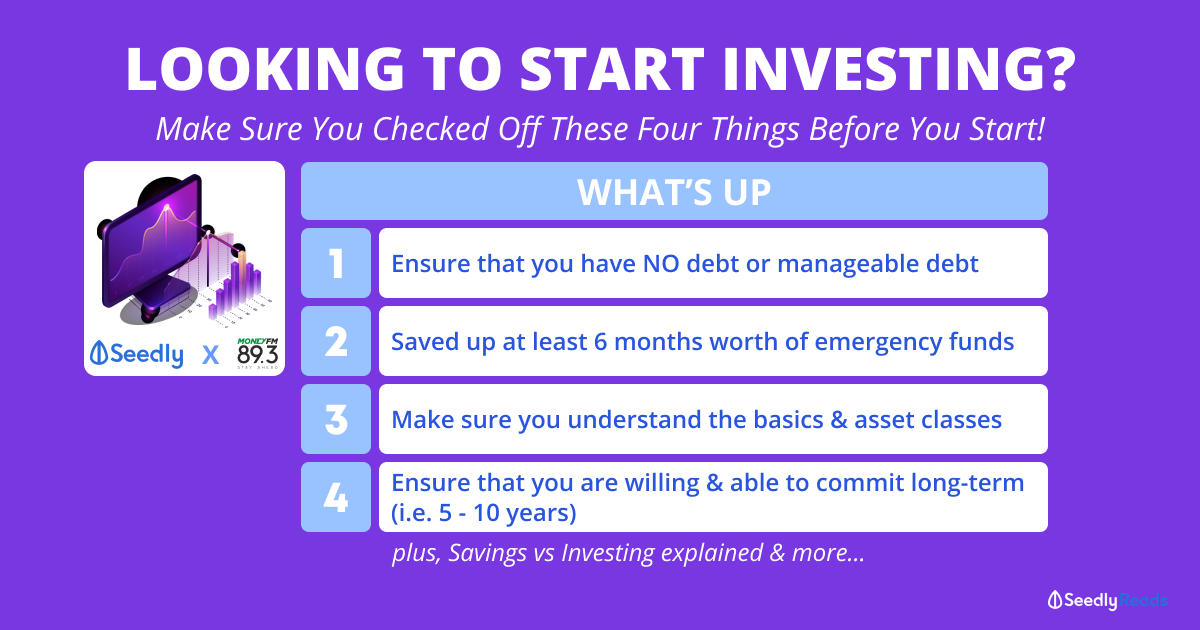Push out an MVP (Minimum Viable Product) as soon as you can. A startup is essentially a hypothesis: will product X, targeted at Y demographic, using Z marketing channels, work? The best, and only, way to prove such a hypothesis is in the real-world. You should reach your target market quickly, and test whether they would pay for, or use, your product.
MVPs can be as simple as a landing page with an email sign-up form, with no actual product ready yet. Some founders have used these landing pages to gauge potential interest in their product while they're building it. When they saw significant interest, they knew they were onto something.
Other MVPs involve pushing out a just-barely-ready product that people can use. For instance, let's say you're building a SaaS (Software as a Service) business to automate digital marketing functions for SMEs. You could build a product with just 1 main feature, e.g. automating A/B tests for Google Ads to optimise ad-spend and conversion performance. Use this MVP to measure key data points on how users are engaging with your business:
a. Are they willing to pay for it? If yes, how much? If no, what's missing to get them to pay you for your product?
b. What's your retention rate? What % of users drop off after 1, 3, 6, and 12 months?
c. What's your weekly or monthly growth rate?
d. Are your marketing channels working? What's your ROI on customer acquisition costs?
e. Speak with your users directly. What are the key pain points that users have with your product? Is it making their lives easier and better?
An MVP allows you to rapidly test whether your idea will gain any traction with your intended target market. It allows you to measure the degree of this traction, and also to see where the weak spots are in your business. You can then take this data and rapidly iterate to make improvements. The quicker you move through these iteration cycles, and the better the improvements you make during these cycles, the faster your startup will grow.
Founding a startup is expensive, and you're going to be sinking lots of money and time into it if you really want to build something out of it. So don't forget about startup insurance - that will cover you against potential lawsuits, employee injuries, etc. that may come your way while you're moving fast and breaking things.
All the best in your journey to build something bigger and better. Let us know when you've made the cover of Entrepreneur magazine!









Push out an MVP (Minimum Viable Product) as soon as you can. A startup is essentially a hypothesis: will product X, targeted at Y demographic, using Z marketing channels, work? The best, and only, way to prove such a hypothesis is in the real-world. You should reach your target market quickly, and test whether they would pay for, or use, your product.
MVPs can be as simple as a landing page with an email sign-up form, with no actual product ready yet. Some founders have used these landing pages to gauge potential interest in their product while they're building it. When they saw significant interest, they knew they were onto something.
Other MVPs involve pushing out a just-barely-ready product that people can use. For instance, let's say you're building a SaaS (Software as a Service) business to automate digital marketing functions for SMEs. You could build a product with just 1 main feature, e.g. automating A/B tests for Google Ads to optimise ad-spend and conversion performance. Use this MVP to measure key data points on how users are engaging with your business:
a. Are they willing to pay for it? If yes, how much? If no, what's missing to get them to pay you for your product?
b. What's your retention rate? What % of users drop off after 1, 3, 6, and 12 months?
c. What's your weekly or monthly growth rate?
d. Are your marketing channels working? What's your ROI on customer acquisition costs?
e. Speak with your users directly. What are the key pain points that users have with your product? Is it making their lives easier and better?
An MVP allows you to rapidly test whether your idea will gain any traction with your intended target market. It allows you to measure the degree of this traction, and also to see where the weak spots are in your business. You can then take this data and rapidly iterate to make improvements. The quicker you move through these iteration cycles, and the better the improvements you make during these cycles, the faster your startup will grow.
Founding a startup is expensive, and you're going to be sinking lots of money and time into it if you really want to build something out of it. So don't forget about startup insurance - that will cover you against potential lawsuits, employee injuries, etc. that may come your way while you're moving fast and breaking things.
All the best in your journey to build something bigger and better. Let us know when you've made the cover of Entrepreneur magazine!